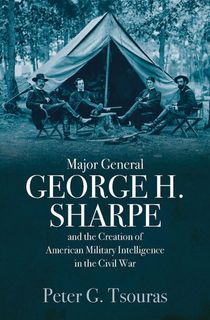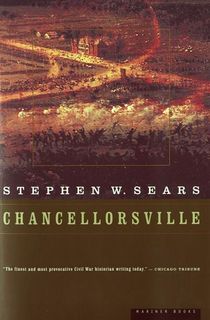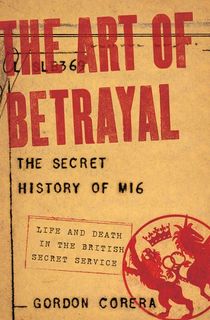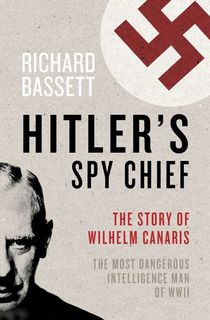Military intelligence comes in many forms—from wartime spying to computer hacking. Throughout history, military intelligence has grown and changed—sometimes for the better, and sometimes for the worse. These seven books examine many different points in history in which military intelligence has proven impactful and relevant.
From General George H. Sharpe’s scouts who provided the Union army with Confederate details during the Civil War to its use in the modern age of terrorism, these books provide an in-depth analysis on the subject. Crack open these war histories, biographies, and memoirs, and learn about the fascinating history of military intelligence.

Major General George H. Sharpe and the Creation of American Military Intelligence in the Civil War
Looking back at the origins of American military intelligence, author Peter G. Tsouras chronicles the life of Major General George H. Sharpe—the creator of the Bureau of Military Information. During the Civil War, Sharpe’s Union scouts identified the location of the Confederate Army and provided complete profiles. One of his most important missions took place in 1863, in which he received intelligence in preparation for the Chancellorsville campaign.
Though the Union inevitably lost that battle, the important information gained was not negated and paved the way for how we collect intelligence today. Spanning beyond just his role in the Civil War, and taken in-part from the journal of Sharpe’s analyst John C. Babcock, this biography also details Sharpe’s time in politics—including his friendships with Presidents Grant and Arthur and his support of African-American Civil Rights.

Chancellorsville
Highlighting the integral intelligence that General Sharpe collected in preparation for the Chancellorsville campaign, the author of Gettysburg offers a compelling account of the battle. Using military intelligence reports, Sears shows how General Joseph Hooker—known as “Fighting Joe”—was provided with details about Lee’s troops. It was this battle that led to the death of Confederate Lt. General Thomas J. “Stonewall” Jackson, but ultimately resulted in a Confederate victory.

The Art of Betrayal
Though working for MI6, Britain’s Secret Intelligence Service, has been glamorized by authors like Ian Fleming and John le Carré, the real job doesn’t always offer slick getaways or martinis—shaken, not stirred. In The Art of Betrayal, author Gordon Corera dives into the world of the MI6—from the Cold War era to modern day. Based on first-hand accounts from agents who have encountered everything while in the line of duty, Corera examines the real people at the forefront of intelligence gathering.

Hitler's Spy Chief
Hitler’s Spy Chief tells the riveting true story about double agent Wilhelm Canaris. Canaris served as the head of the German secret service—called the Abwehr—during the Nazi reign in Germany. But unbeknownst to the Nazis, Canaris was also feeding information to the Allies. Involved in several failed attempts to assassinate the Führer, Canaris was eventually found out after a 1944 attempt and executed a few weeks before the war ended. Richard Bassett’s compelling book brings Canaris’ rogue actions to life and examines how they effected the outcome of World War II.

Blowback
Forbidden Bookshelf takes a look at a controversial moment in American history: During World War II, U.S. intelligence organizations (like the CIA) employed Nazi war criminals to spread propaganda against the Soviet Union—kick-starting the Cold War. Christopher Simpson’s book examines this use of military intelligence and how it has impacted the American government to this day.

The Art of Intelligence
This memoir of a CIA veteran explores the inner workings of the organization. Immediately following 9/11, Crumpton was asked to lead the Afghanistan campaign—implementing strategic initiative abroad and on the ground. But this book spans much more than that—from Crumpton’s early days working in Africa to being assigned to the FBI to eventually running all CIA clandestine operations inside the U.S. His book provides a detailed, inside look at military intelligence and the risks and rewards associated with it.

Playing to the Edge
A modern look at military intelligence, General Michael Hayden examines how the fight against terrorism has changed. The former director of the CIA confronts the backlash that the agency and its methods have faced, while simplistically explaining why certain events occurred and how government agencies have had to adapt to the changing world. No matter your political stance, it’s an informative look at an insider and his experiences.
This post is sponsored by Casemate. Thank you for supporting our partners, who make it possible for The Archive to continue publishing the history stories you love.


